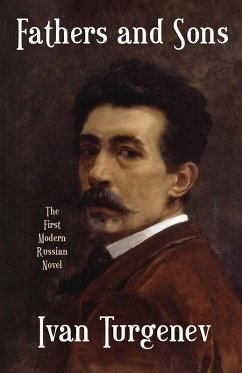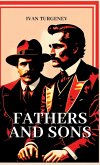This classic novel delves into the generational clash between the older Russian aristocracy and the rising wave of nihilistic youth in the mid-19th century. At the heart of the story is the relationship between the traditionalist Nikolai and his son Arkady, as well as Arkady's friend Bazarov, a staunch nihilist who challenges established norms. Through rich character development, Turgenev explores themes of ideology, change, and the complexities of human connection.
Hinweis: Dieser Artikel kann nur an eine deutsche Lieferadresse ausgeliefert werden.
Hinweis: Dieser Artikel kann nur an eine deutsche Lieferadresse ausgeliefert werden.









